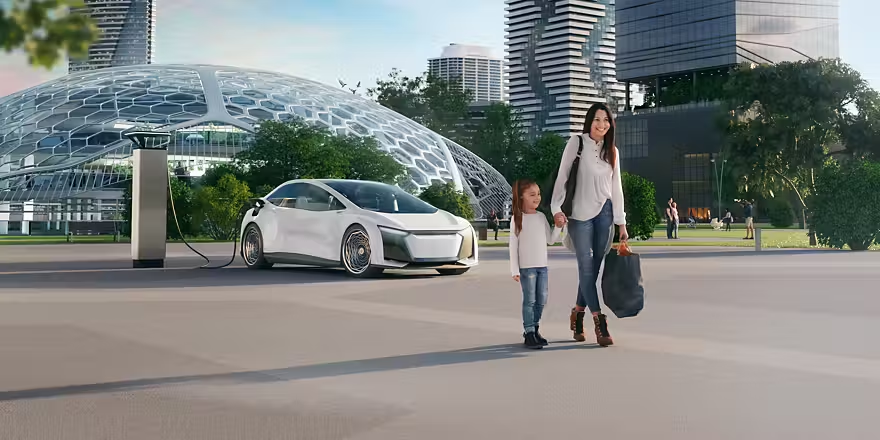In 2023, the automotive world is racing toward a greener future. With electric vehicles (EVs) sales surging by 60% globally in the first half of the year, according to Bloomberg Green, the debate between EVs, hybrids, and traditional gasoline cars is hotter than ever. As governments push for stricter emissions standards and consumers become more eco-conscious, the choice between these three vehicle types has significant implications for drivers and the planet. This article will explore the latest trends in EVs, hybrids, and gas cars, helping you navigate the evolving landscape of mobility. We’ll delve into the benefits and drawbacks of each type, examine key industry advancements, and offer practical advice for potential buyers.
The Rise of Electric Vehicles: A Silent Revolution
Why Choose Electric Vehicles in 2023?
Electric vehicles have been gaining traction due to their environmental benefits and advances in technology. In 2023, they represent the forefront of sustainable transport. Here’s why:
- Zero Emissions: EVs produce no tailpipe emissions, offering a cleaner option for the environment.
- Lower Running Costs: With fewer moving parts, EVs typically have lower maintenance costs. Additionally, electricity is cheaper than gasoline.
- Government Incentives: Many countries offer tax rebates and incentives for EV buyers. For example, the U.S. provides up to $7,500 in federal tax credits, as reported by InsideEVs.
- Cutting-edge Technology: Brands like Tesla and Lucid Motors lead with innovations, including advanced driver-assistance systems and superior battery ranges.
Key Developments in EV Technology
- Battery Improvements: New battery technologies, such as solid-state batteries, promise longer ranges and faster charging times. According to PV Magazine, these could enter the market by 2025.
- Charging Infrastructure Expansion: With companies like Rivian and Volkswagen investing heavily in charging networks, accessibility is improving. By the end of 2023, the U.S. aims to have 500,000 public chargers, as per Reuters Mobility.
The Hybrid Approach: Best of Both Worlds?
What Makes Hybrids a Compelling Choice?
Hybrids offer a middle ground for those not ready to fully commit to electric:
- Fuel Efficiency: Hybrids use a combination of gasoline and electric power, improving fuel economy.
- Reduced Emissions: While not as clean as EVs, hybrids emit fewer pollutants than traditional gas cars.
- No Range Anxiety: With a gasoline engine as a backup, hybrids eliminate the worry about running out of charge.
Recent Innovations in Hybrid Technology
- Plug-in Hybrids (PHEVs): These vehicles offer an all-electric range for short commutes, switching to hybrid mode for longer distances. The Hyundai Ioniq and Ford Escape PHEV are popular options.
- Regenerative Braking: This technology recaptures energy during braking, further enhancing fuel efficiency.
Gasoline Cars: Still Relevant in 2023?
Why Some Drivers Stick with Gasoline
Despite the rise of EVs and hybrids, gas cars remain popular due to:
- Lower Initial Costs: Gasoline vehicles typically have a lower purchase price compared to EVs and hybrids.
- Infrastructure and Familiarity: Gas stations are ubiquitous, and maintenance is widely understood.
- Performance: Some drivers prefer the power and range of traditional engines.
Challenges Facing Gasoline Vehicles
- Environmental Impact: Gas cars are a major source of greenhouse gas emissions.
- Rising Fuel Costs: With increasing oil prices, running a gas car is becoming more expensive.
- Regulatory Pressure: Many countries plan to phase out new gasoline cars by 2035, as noted by the IEA.
Practical Tips for Choosing Your Next Vehicle
How to Decide: EV, Hybrid, or Gas?
- Assess Your Driving Needs: Consider your daily commute, access to charging, and budget.
- Calculate Long-term Costs: Factor in fuel, maintenance, and potential incentives or rebates.
- Research Resale Value: EVs and hybrids often have higher depreciation, but trends are changing as demand increases.
- Test Drive: Experience the driving dynamics of each type to find your personal preference.
Where to Buy Your Next Vehicle
- Reputable Dealerships: For new or certified pre-owned vehicles, consider visiting established dealerships.
- Online Platforms: Websites like Carvana or Vroom offer convenience and competitive pricing.
- Manufacturer Websites: Companies like Tesla sell directly to consumers, offering a personalized buying process.
Conclusion: Navigating the Future of Mobility
The automotive landscape of 2023 is rich with options, from cutting-edge EVs to practical hybrids and familiar gasoline cars. Each vehicle type has its unique advantages and considerations. As we move towards a more sustainable future, understanding these differences will empower you to make an informed decision that aligns with your values and needs.
Are you ready to join the electric revolution, or does the versatility of a hybrid better suit your lifestyle? Perhaps you still find comfort in the traditional gasoline engine. Whatever your choice, the road ahead is filled with exciting innovations and opportunities. Share your thoughts in the comments below and drive into the future of mobility with confidence!

